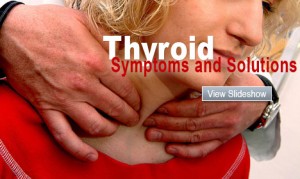Hyperthyroidism and its Symptoms
The Thyroid gland’s location is lower and it is located just in front of the neck above your chest area. It is fully controlled by the sitting pituitary gland in the area of your brain. This gland produces hormones which converts the food in energy in the body and balances the body’s metabolism. It is a problem which is on rise these days and awareness about it has become an important issue.
Contents
About the condition
Commonly referred as the condition of overactive thyroid, it is characterized by over production of the thyroid hormones. There are two important hormones produced called thyroxine and triiodothyronine. They help in conversion of food into energy. Thyroid gland is controlled by the pituitary gland which is located in the brain. When the gland starts producing excess of the hormones, it results in imbalance of the metabolism and other conditions that affects the daily life of the person.
Causes
There are various causes for hyperthyroidism. The most important cause is the over production of the hormone. Thyroid gland performs the function of removal of iodine. In case this function is not been performed properly then there are chances of hyperthyroidism. Another important reason behind it is the Grave’s disease, in which the immune system of the body starts attacking the thyroid gland. To counter this attack, thyroid gland produces excess of thyroid hormones which results in this condition. When the thyroid gland is inflamed or swells up it can result in excess production of hormones. Another cause behind it is tumor in testis or ovaries.
Hyperthyroidism Symptoms
Symptoms are very important as they help in diagnosing a disease or condition and taking proper treatment to cure the same. Common symptoms that point towards hyperthyroidism are loss of weight and hair, increase in the heart beats, production of excess sweat in the body, increase in appetite, restlessness and feeling of nervousness all the time. Other common signs are diarrhea, tremors in body, high blood pressure, nausea and vomiting. In women, lack of menstrual cycle is another indication. There are a number of treatments available which can be started after proper diagnosis by a specialist. There are anti-thyroid medicines which help in reduction in the level of production of thyroid hormones. There are surgeries and radioactive iodine method through which the thyroid is removed. In such a case the patient will have to take thyroid hormone medicine as a replacement throughout life. Overactive thyroid is a curable condition. Therefore it is important to be aware about the signs and symptoms so that it can be treated on time.




